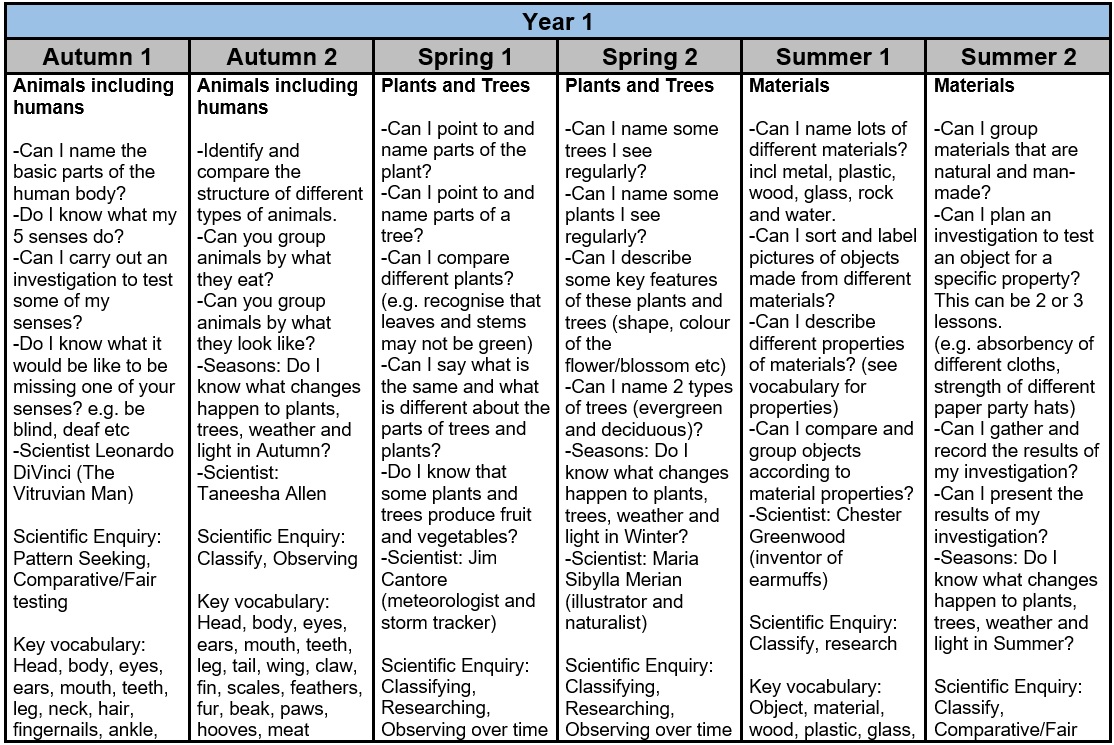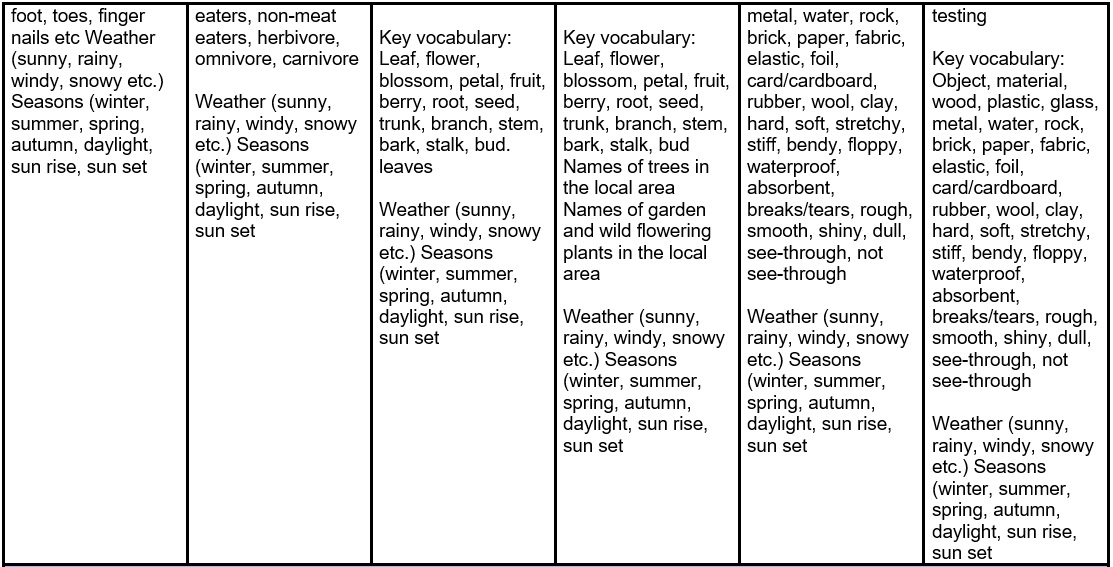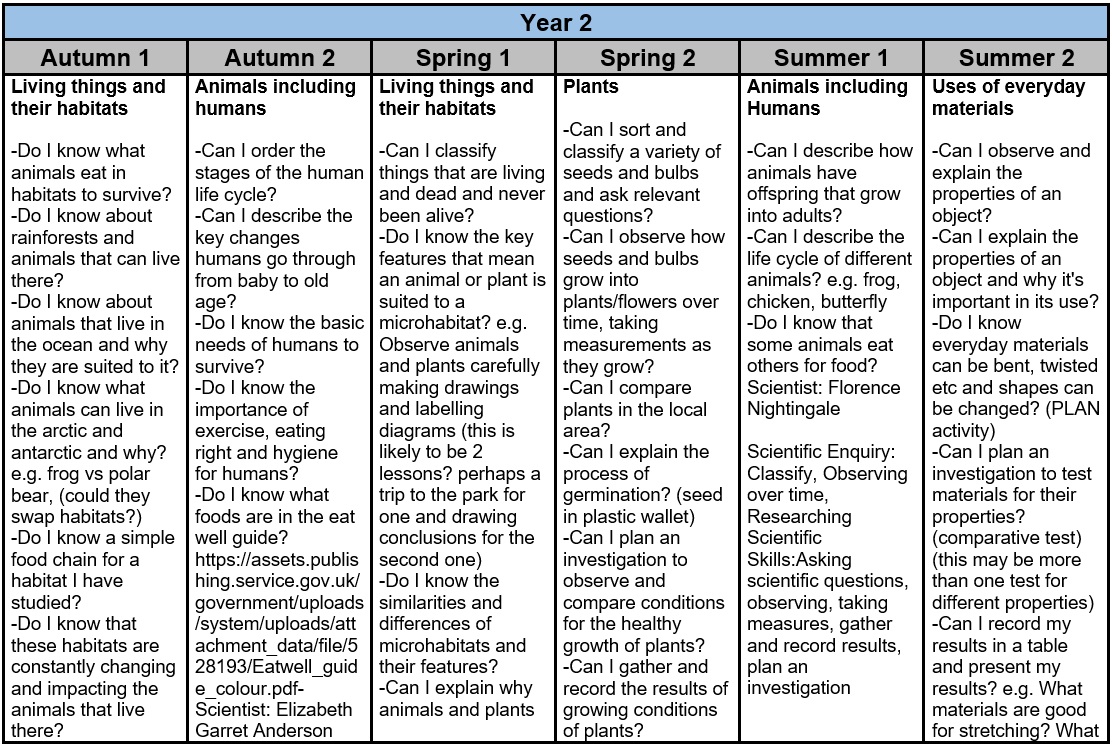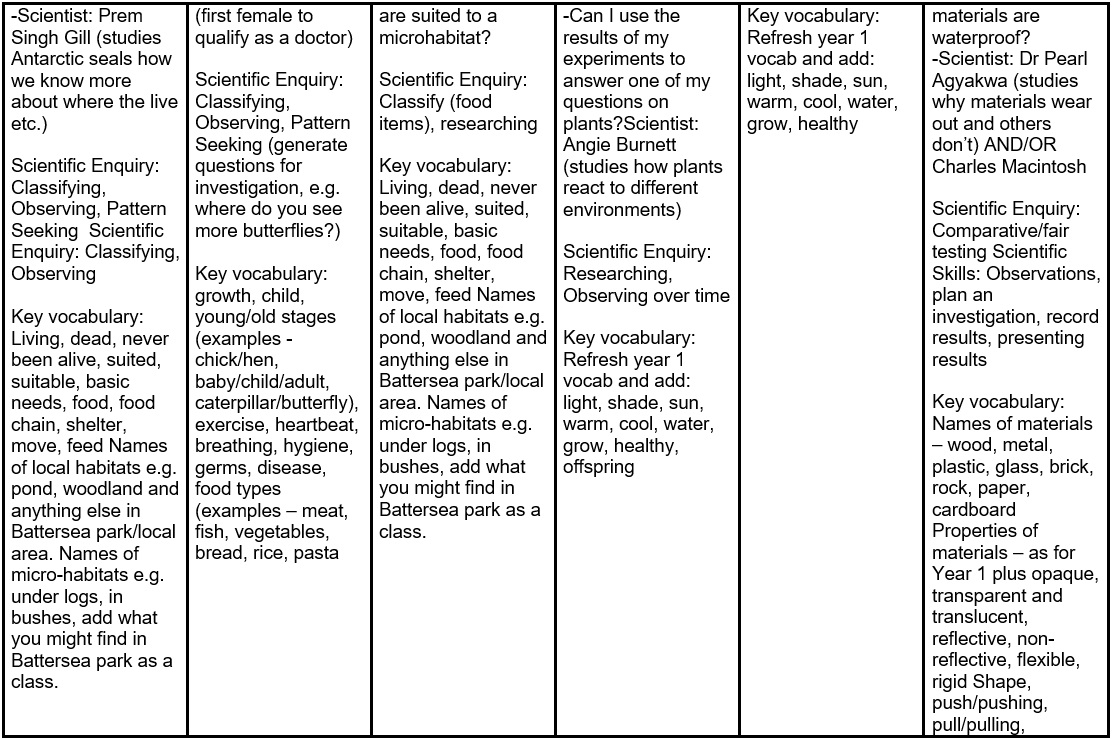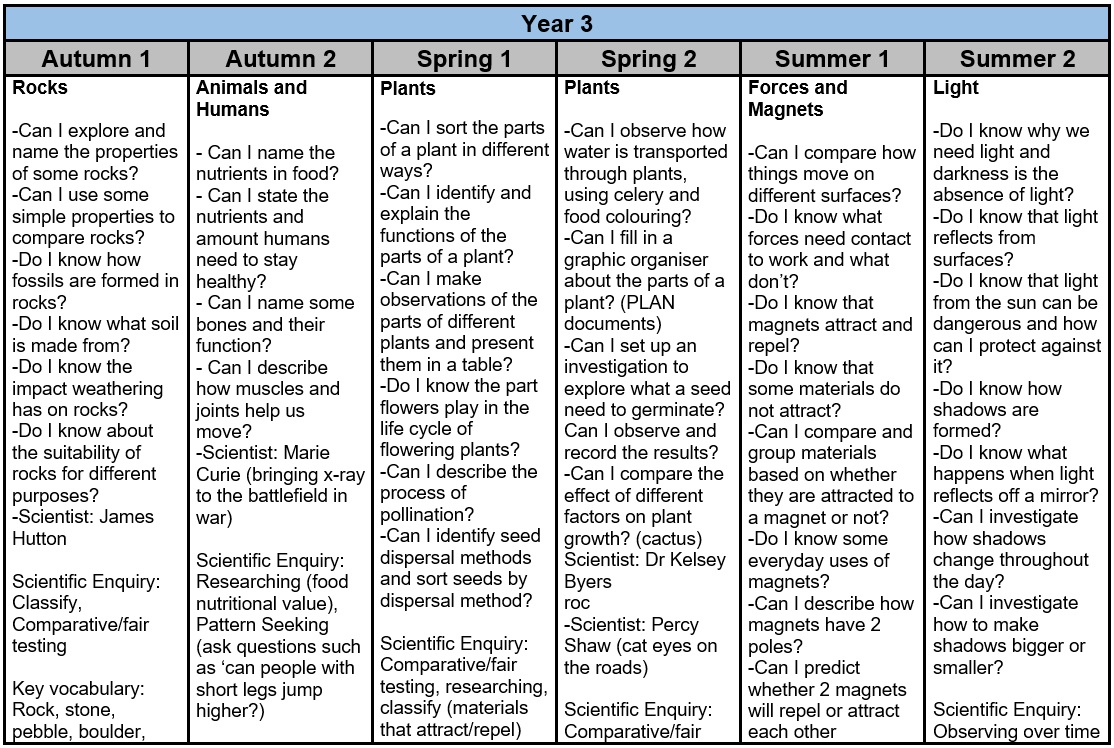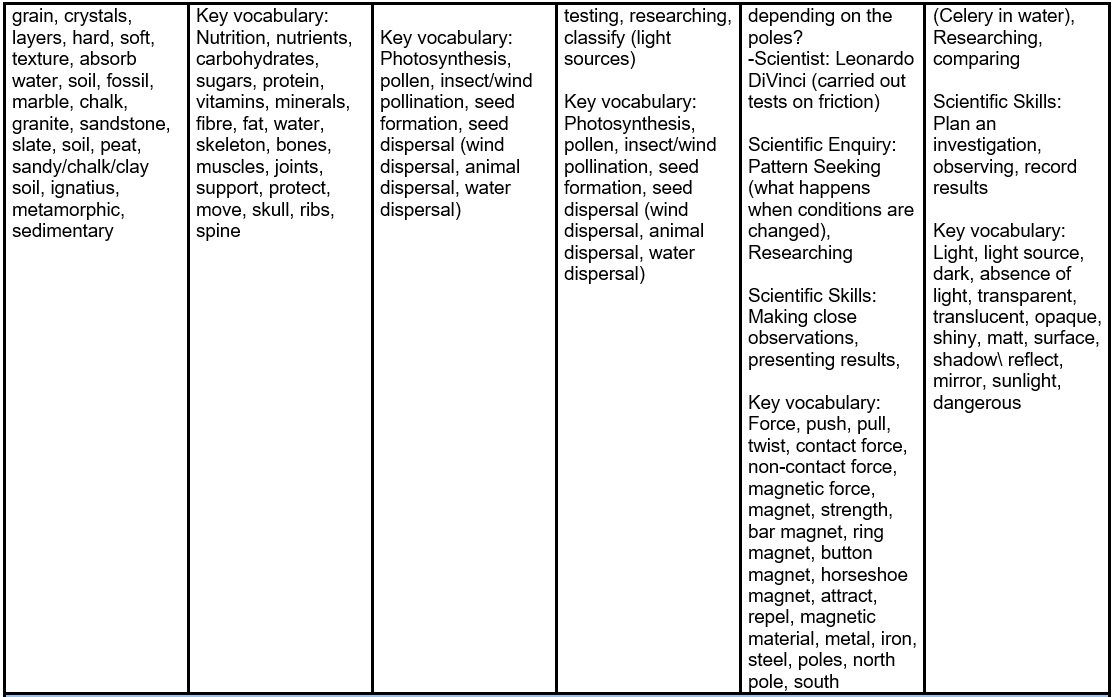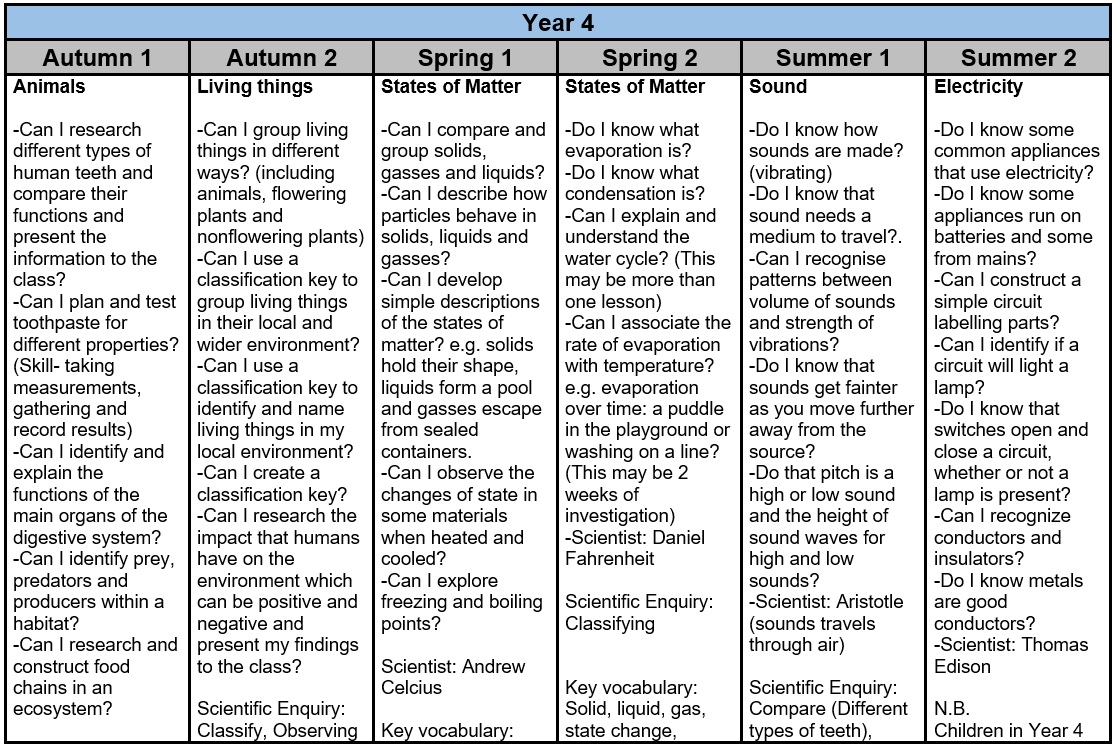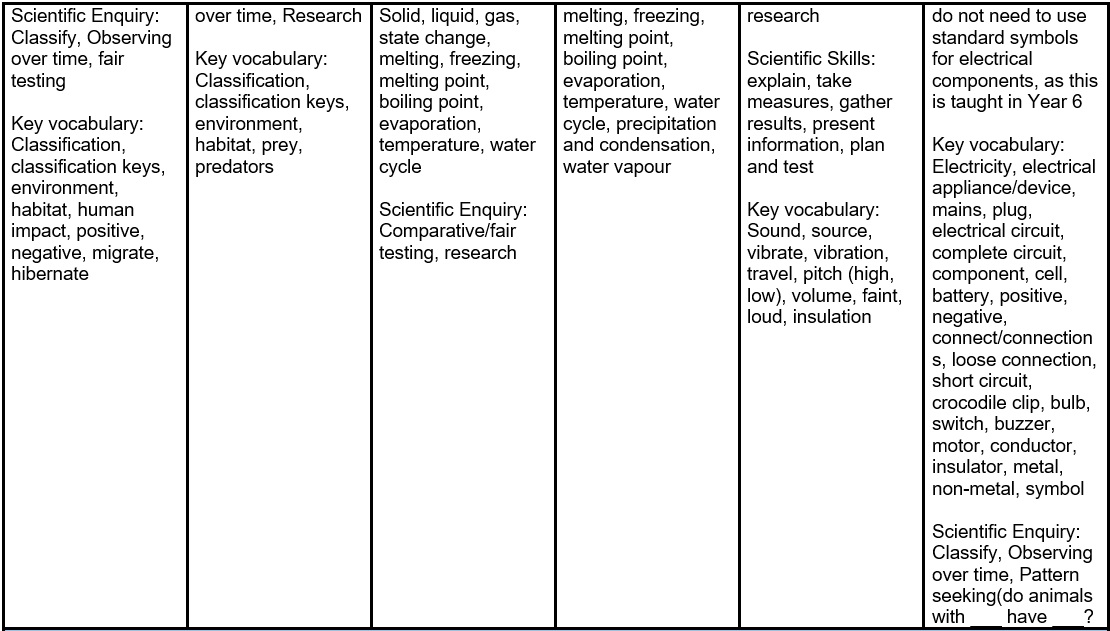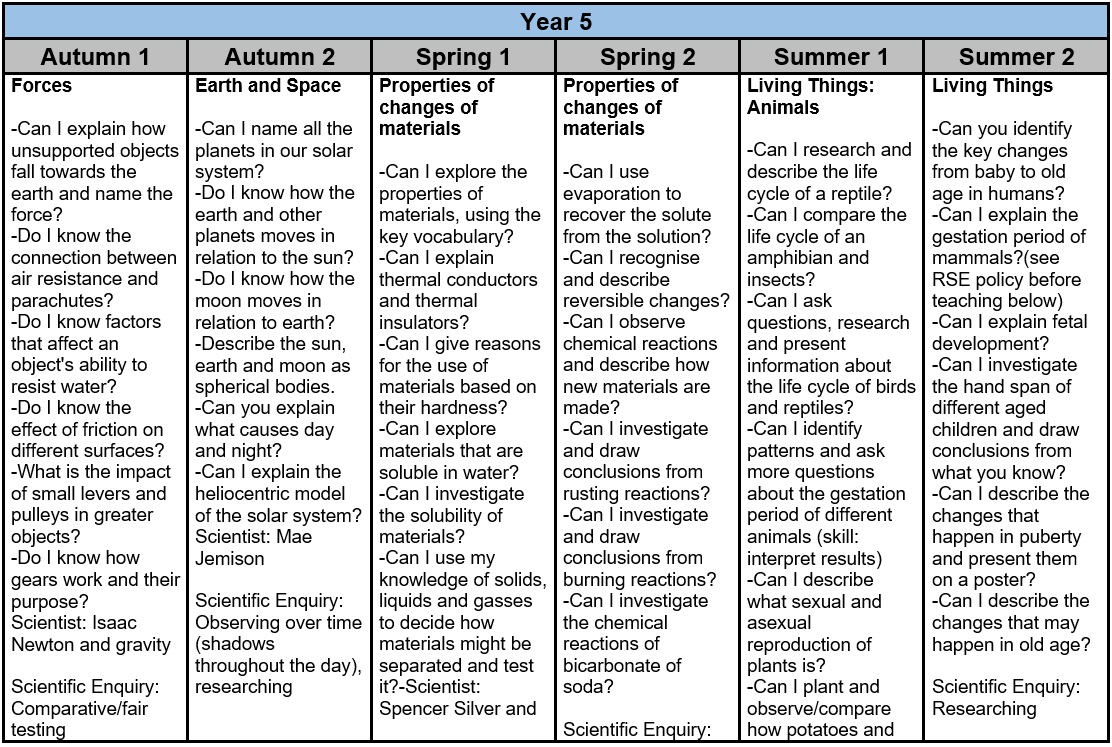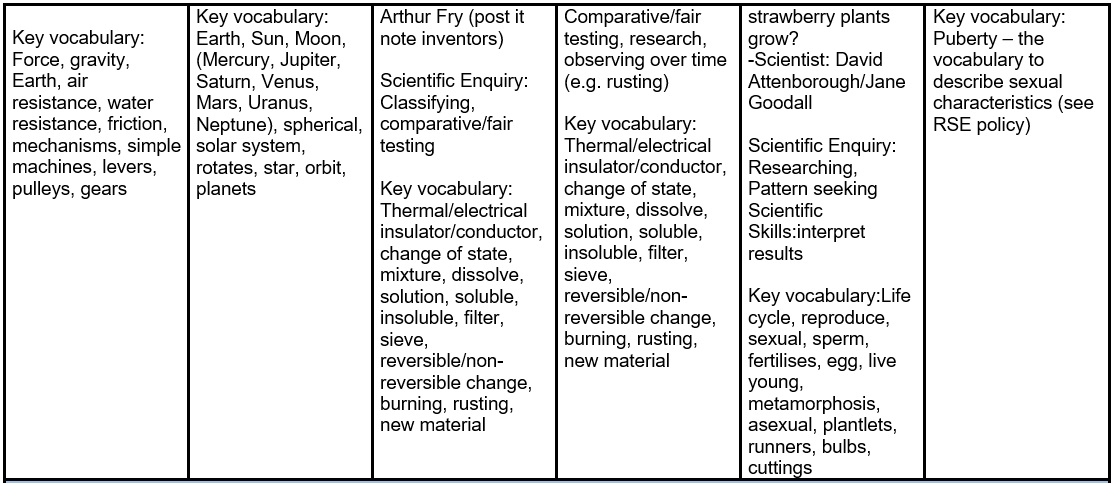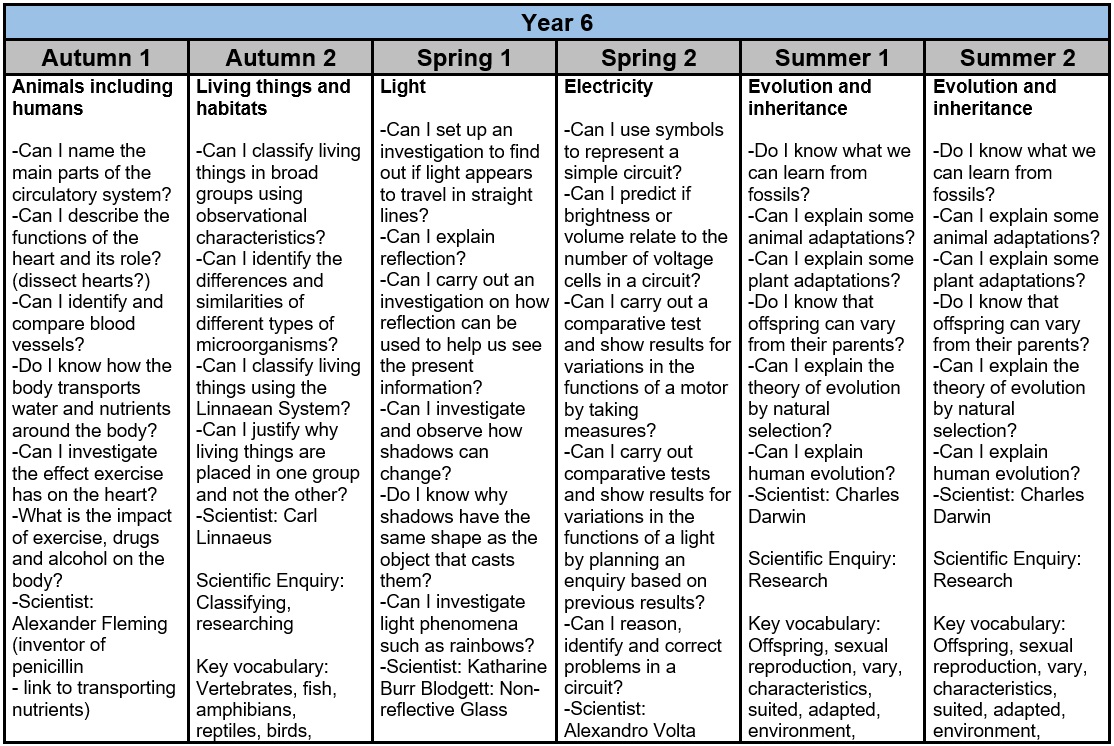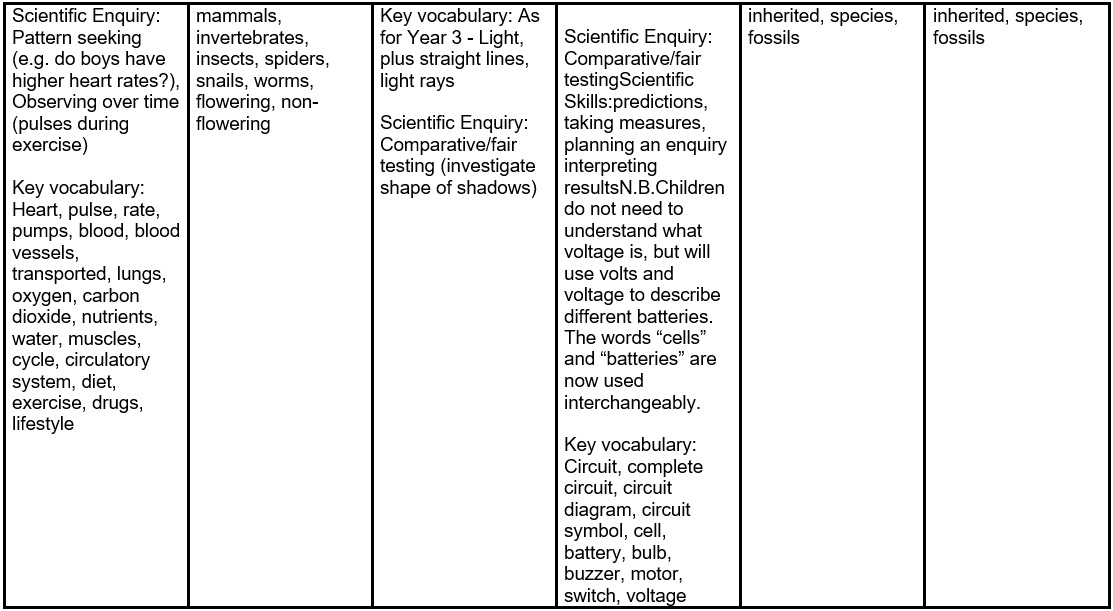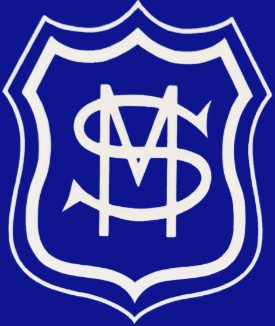Science
Our Approach to the Teaching and Learning of Science at St Mary’s School
At St Mary’s, we use science to inspire and develop our children’s natural sense of awe and wonder about the world around them. With an awareness and understanding of themselves in their surroundings, we aim to equip them with the knowledge to make informed decisions about how they live their lives and how they treat our planet.
Through our discrete teaching of science, our children will develop a balance of scientific knowledge and skills. Units of work have been chosen that will enable the children to meet the National Curriculum requirements. They are sequenced in an age appropriate way that allows for progression of skills and knowledge. We adapt our lessons carefully for our children with SEND to ensure that all children can access their learning. Teachers consider carefully how to remove barriers for learning through careful planning and adjustments to resources where necessary. For the more able children, each lesson provides an opportunity to showcase their deeper understanding through a reasoning/real life application challenge.
Across the key stages, our children will have the opportunity to work practically, devising comparative and fair tests, searching for patterns, making observations and using results to draw conclusions. Their learning is deepened through other subjects, especially maths, English and computing, and through our annual Science Week where the whole school comes together to focus on and celebrate significant people and achievements in the world of science.
At the beginning of each new topic children create a mind map of previous knowledge which helps to trigger their prior learning. They use their science portfolios to remind them of their learning from previous year groups as well as creating new learning journeys. In all lessons, key scientific vocabulary is embedded and gradually introduced in a progressive manner. Children are actively encouraged to use it in their spoken language and written work throughout the lessons. Where applicable, the children are aware of which scientific enquiry type they will be using in the lesson. Children are assessed on the scientific skills that are carefully planned into lessons, where appropriate, by the teacher. At the end of each lesson, children’s understanding of the learning objective is assessed on the knowledge organiser. Teachers monitor learning in the lesson to quickly pick up on misconceptions and to scaffold tasks in order to support individuals. Whole class and targeted feedback is given in the lesson where possible and after, through written feedback if necessary. We use knowledge organisers and working walls to help remind the children about their learning in each unit.
All this ensures that children are constantly moved forward with their learning and gaps are addressed in a timely manner.
Early Years Science links closely with all other areas of the national curriculum including Communication and Language, Maths and Expressive Arts and Design.
During their learning journey in Nursery and Reception, children will explore topics where they are encouraged to use their senses to investigate and to ask questions about why things happen and how things work. The Characteristics of Effective Learning underpin the way young children learn. Their learning environment allows them to play and explore, showing curiosity about objects, events and people, enabling our young learners to become ‘scientists’.
We use lots of opportunities to bring the National Curriculum to life and make the children’s learning relevant. Battersea Park Zoo and Subtropical Gardens and our work with “Farm to Fork” supplement our biology units. Our use of the STEM ambassadors ensures that children can see themselves as scientists of the future, and our work with Emmanuel School 6th form gives the children opportunities to explore science beyond KS2.
Our children start their scientific journey with more questions than answers. By the end of their time with us, we hope that they continue to ask lots of questions, but become equipped with the skills, knowledge and confidence to know how to start answering them themselves.
EYFS Educational Programme – Understanding the World
Understanding the world involves guiding children to make sense of their physical world and their community. The frequency and range of children’s personal experiences increases their knowledge and sense of the world around them – from visiting parks, libraries and museums to meeting important members of society such as police officers, nurses and firefighters. In addition, listening to a broad selection of stories, non-fiction, rhymes and poems will foster their understanding of our culturally, socially, technologically and ecologically diverse world. As well as building important knowledge, this extends their familiarity with words that support understanding across domains. Enriching and widening children’s vocabulary will support later reading comprehension.
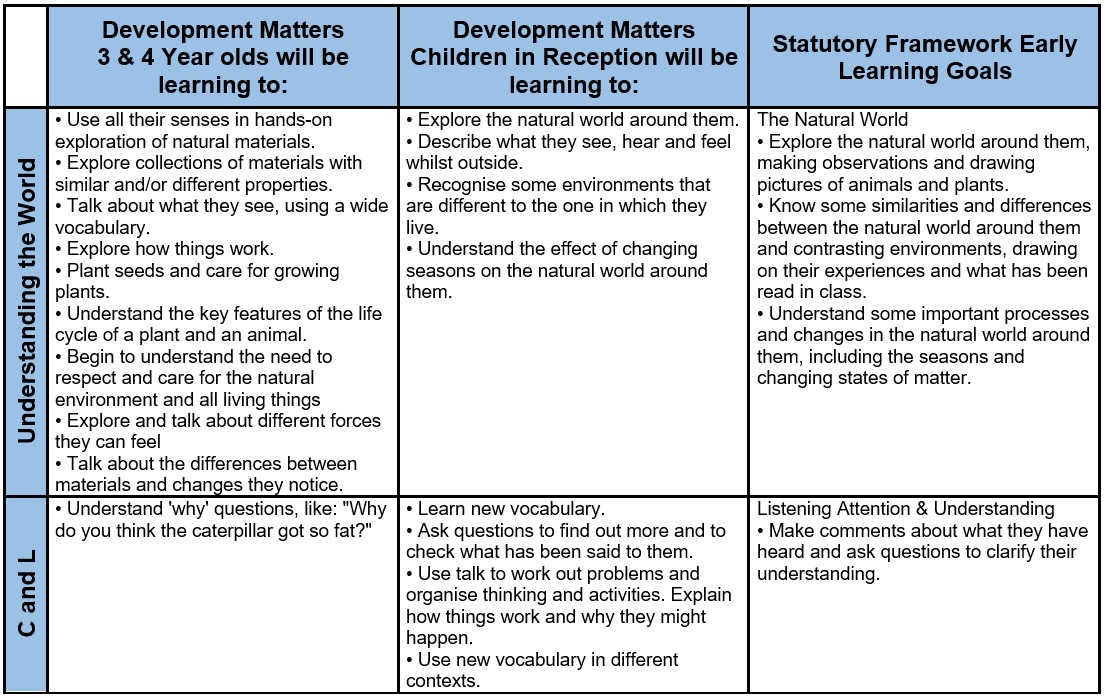
Science Curriculum Road Map Year 1 – Year 6
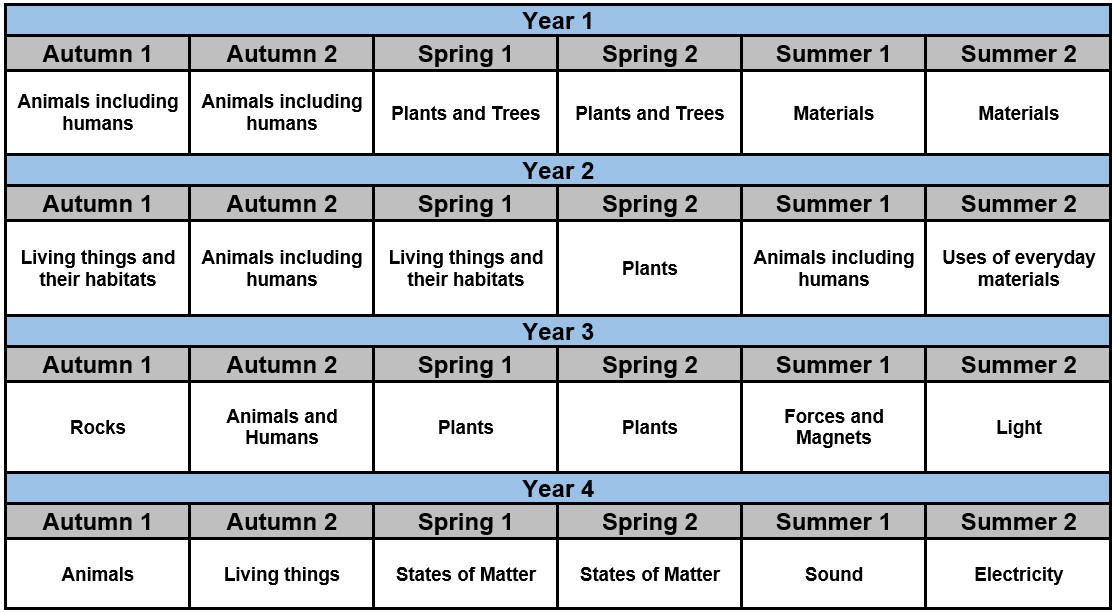

Science Curriculum Milestones Year 1 – Year 6
